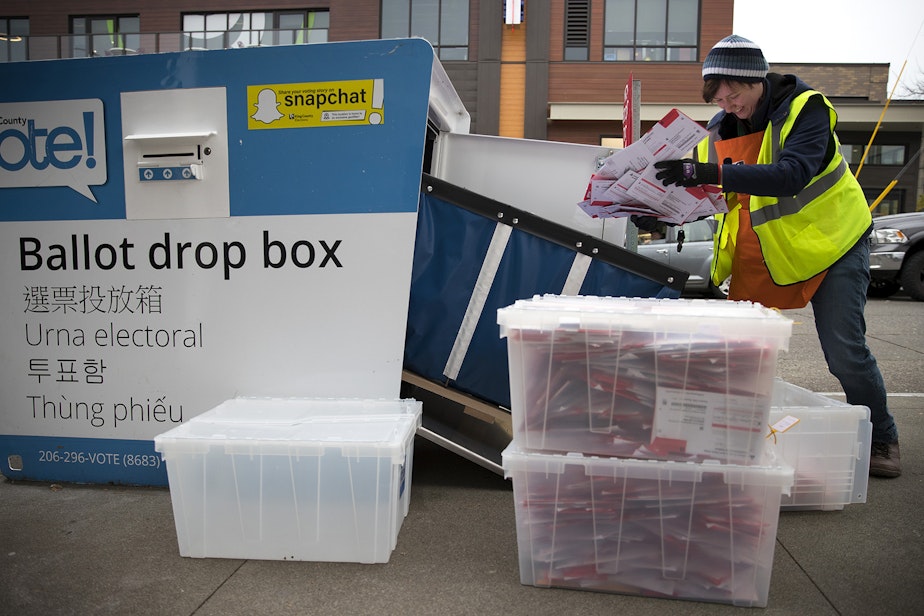Washington’s Voting Rights Act aims to give minorities more voice at polls

State lawmakers passed the Washington Voting Rights Act this week, meant to give underrepresented minority groups a larger voice in elections. And that could mean more district-based voting in the future.
The act encourages local governments to use district-based elections, like city councils in Seattle, Tacoma, and Spokane do already. The state senate gave final approval of the act Monday, sending it to Governor Jay Inslee for his signature.
Democratic state Representative Zack Hudgins was among the bill’s supporters.
"The bill before us addresses the problems that we saw in Yakima, and that we've heard about in Pasco," he said.
Yakima residents filed a federal lawsuit in 2012 saying the city's at-large election system diluted the Latino vote. As a solution, Yakima switched to district-based voting and elected its first-ever Latino city council members the next year.
Sponsored
Where at-large systems elect candidates to represent an entire city or county, district-based systems elect people by subdivision. In Seattle, for example, two city council members represent the entire city and seven represent a specific district such as West Seattle or North Seattle.
Under the measure, people could work with their government to adopt district-based voting, ranked-choice ballots or other tactics to give minorities a bigger voice.
Hudgins said it sets up a collaborative process for communities to “work it out before they end up in court."
He added: "We say we should have justice for all people, and that means if your vote's not getting counted because the system isn't working well, then we should fix it, whether it's at the biggest city in the state or the smallest fire district in the state."
But the bill has been contentious in the legislature. Republican Senator Morgan Irwin said voting by district would be hard on small communities that already have few candidates.
Sponsored
"We've had fire district seats across the states that have gone unfilled," Irwin said. "Working with some of our friends on the labor side, they're very, very concerned about how this is going to effect the ports. Many of our port districts, it doesn't make sense to go to these district-based elections."
Irwin and other opponents of the Voting Rights Act contend it could lead to lawsuits and be costly for local governments, since residents still have the option to sue their government to force it to use district-based elections.

